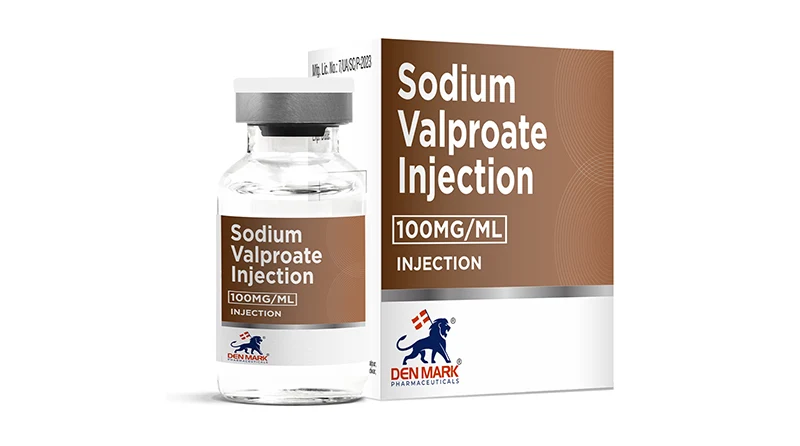Skip to content
✅ 1. Description / Prescription
- Generic Name: Sodium Valproate
- Formulation: Injection (Solution for IV use)
- Strength: 100 mg/mL
- Route of Administration: Intravenous (IV)
- Prescription Required: ✔️ Yes
- Indications:
- Emergency treatment of status epilepticus (prolonged or repeated seizures)
- When oral administration is not possible in epilepsy or bipolar disorder
- Short-term use during perioperative periods or hospitalization
✅ 2. Nature of the Medicine
- Drug Class: Anticonvulsant / Antiepileptic
- Mechanism of Action:
- Increases GABA levels in the brain (inhibitory neurotransmitter)
- Stabilizes neurons by modulating sodium and calcium channels
- Suppresses abnormal electrical activity in the brain
✅ 3. Advantages
- Rapid action in emergency situations (e.g., seizures, unconscious patient)
- Useful in patients unable to take oral medications
- Can be used for loading dose followed by oral maintenance
- Lower risk of cardiopulmonary side effects compared to phenytoin or phenobarbital
✅ 4. Common Packaging
- Concentration: 100 mg/mL
- Vial Size: Usually 3 mL, 5 mL, or 10 mL glass vials
- Total Content per Vial: 300 mg, 500 mg, or 1,000 mg
- Packaging Type: Single-use glass ampoule or vial
- May be labeled as:
- “Sodium Valproate Injection”
- Or “Valproate Sodium Solution for IV Use”
✅ 5. Storage Conditions
- Store below 25°C
- Do not refrigerate or freeze
- Protect from light
- Use immediately after opening the vial
- Dilution before IV infusion: Usually diluted in normal saline or 5% dextrose
✅ 6. Patient Advice (for caregivers)
- This medicine is administered by healthcare professionals only — usually in hospital or emergency settings
- Inform medical staff about:
- Allergies, especially to valproate or other antiepileptics
- Liver disease, urea cycle disorders, or clotting problems
- Do not self-administer under any circumstance
- Watch for side effects after administration, especially:
- Sleepiness, confusion, or mood changes
- Nausea, vomiting, or abdominal pain
- Yellowing of the skin or eyes (jaundice)
Call Now Button

